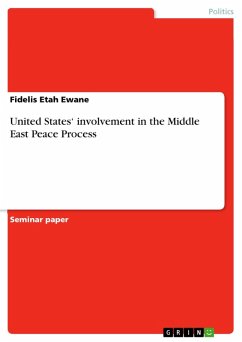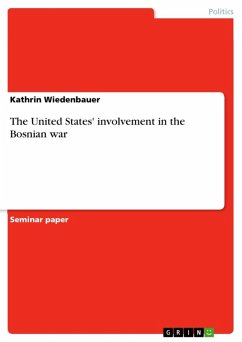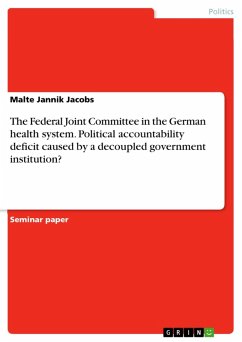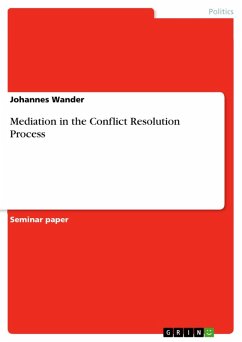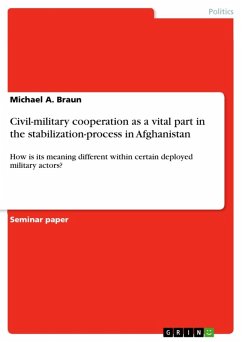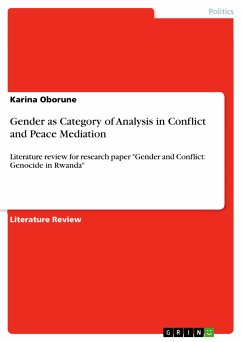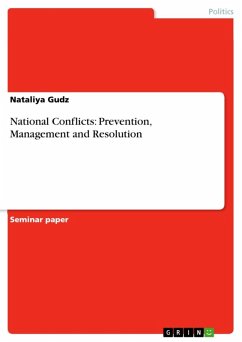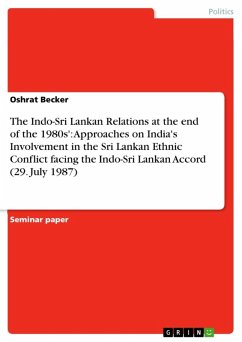Seminar paper from the year 2010 in the subject Politics - Topic: Peace and Conflict, Security, grade: "-", University of Freiburg, language: English, abstract: The Israeli-Palestinian conflict is one of the greatest conflicts of our time, especially as no peace effort has proven to be really effective. From the creation of the state of Israel in 1948, the history of the Palestinians and the Israelis is defined by perpetual conflict with one another. Israelis and Palestinians are entangled with each other and alienated from one another in almost every imaginable way. From 1948 to 1973, Arabs and Israelis engaged in four great wars with heavy casualties on both sides. The United States of America has deployed enormous resources as peace broker in this conflict partly because of its special relationship to Israel and partly because of its economic and strategic interests in the Middle East. Successive American administrations have maintained the tradition of mediation, but the most genuine commitment was made by the Clinton administration, culminating in the signing of the Wye River Memorandum in 1998. This mediation effort notwithstanding, peace between the Israelis and Palestinians is still an imaginary luxury and violence remains the order of the day between the two peoples. The aim of this review paper is to analyze the lack of bold leadership on the part of the United States of America in brokering a lasting peace deal between Isrealis and Palestinians. This paper is divided into three parts and the first part retraces the history of the conflict from the creation of the state of Israel in 1948 to the Yom Kippur war of 1973. The second part examines the main issues of contention in the peace process, beginning with the United States' lack of neutrality, Israeli Security concerns, the refugee problem, the status quo of Jerusalem, the issue of the occupied territories and the Palestinian quest for self determination. The last part proposes policies to the US State Department that can lead to a meaningful and lasting peace in the Middle East. The paper recommends the US to adopt neutrality as mediator, proceed to the creation of a viable Palestinian state and press for the enforcement of previous agreements that will allow for the safe return of refugees, promote apology and reconciliation between Arabs and Jews and encourage shared responsibility over Jerusalem. Rational choice is used to analyse US policy choices, whereas the theory of Prisoner's Dilemma Game is used to analyse Israeli-Palestinian choice of partner.
Dieser Download kann aus rechtlichen Gründen nur mit Rechnungsadresse in A, B, BG, CY, CZ, D, DK, EW, E, FIN, F, GR, HR, H, IRL, I, LT, L, LR, M, NL, PL, P, R, S, SLO, SK ausgeliefert werden.

